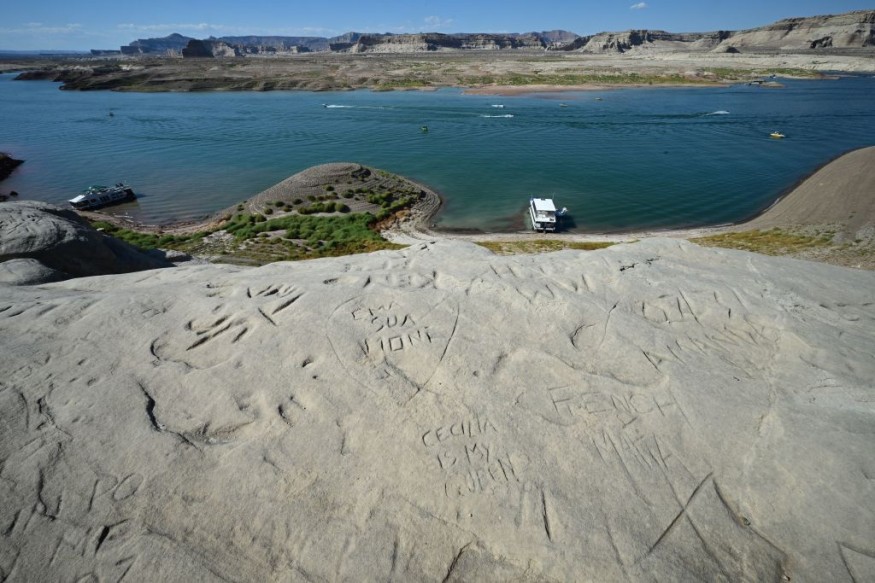The deteriorating shoreline of Lake Powell has unearthed "extremely rare" fossils of a long-extinct mammal ancestor that roamed North America 180 million years ago.

The National Park Service said the bones were discovered earlier this year while documenting fossilized traces in the Glen Canyon National Recreation Area (NRA) in southern Utah.
The site is generally submerged and was only accessible for a brief time until snowmelt restored the lake during the summer months.
Important fossil discovered in US
The discoveries include skulls and teeth from dozens of tritylodonts, mid-sized mammal-related herbivores that previously roamed the region's vast desert.
The bones had been hidden in the reservoir's sandstone walls for almost 180 million years before being discovered by chance in March.
These exceedingly uncommon fossils are one of the year's most significant fossil vertebrate discoveries in the United States.
Several hundred pounds of rocks encasing the fossil bones and skeletons were retrieved at the site by the crew.
These will be scanned with X-ray computerized tomography (CT) at the University of Utah South Jordan Health Center, mechanically prepared, and studied by lab and collections crew volunteers at the St. George Dinosaur Discovery Site at Johnson Farm (SGDS), with assistance from Petrified Forest National Park and the Smithsonian Institution.
The fossils will be housed at the Prehistoric Museum in Price, Utah, as part of the Glen Canyon NRA Museum collections.
"Studying these fossils will help paleontologists learn more about how early mammal relatives survived the mass extinction at the end of the Triassic Period and diversified through the Jurassic Period," the statement said.
Tritylodonts are member of a genus (Tritylodon) of extinct cynodont therapsids (mammal relatives) found as fossils in Late Triassic and Early Jurassic rocks in southern Africa and North America.
These fossils were discovered between 208 and 200 million years old.
Water level dropping
The newly discovered treasure trove could be only the beginning, as the reservoir's dropping water levels reveal fresh strata of rock that may hold insights to our understanding of the past and the development of animals.
"The towering geologic formations that surround Lake Powell are home to a vast suite of unexplored fossil remains, making Glen Canyon [national recreation area] one of the National Park Service's most significant areas for paleontological research," the statement said.
This region, etched by ancient rivers, lakes, streams, and deserts millions of years ago, has the remains of one of Earth's largest mass extinctions.
The climate crisis is causing the area to become progressively drier, and water levels at the reservoir are likely to continue to fall.
The Colorado River, which feeds Lake Powell, was given a reprieve this year when snowmelt from a heavy winter flooded the system.
Scientists had only 120 days after discovering the fossils to recover them before the runoff flooded the site again.
Scientists will spend years searching through the hundreds of pounds of fossil-containing rock recovered from this site, piecing together the puzzle pieces that could reveal how some animals survived conditions that killed others.
"We've only just really started breaking the surface," said Andrew Milner, paleontologist and curator at the St George Dinosaur Discovery Site at Johnson Farm.
Related Article : Invasive Fish Preying on Threatened Species in Lake Powell to be Eradicated as Water Levels Fall
Related Video:
© 2025 NatureWorldNews.com All rights reserved. Do not reproduce without permission.





